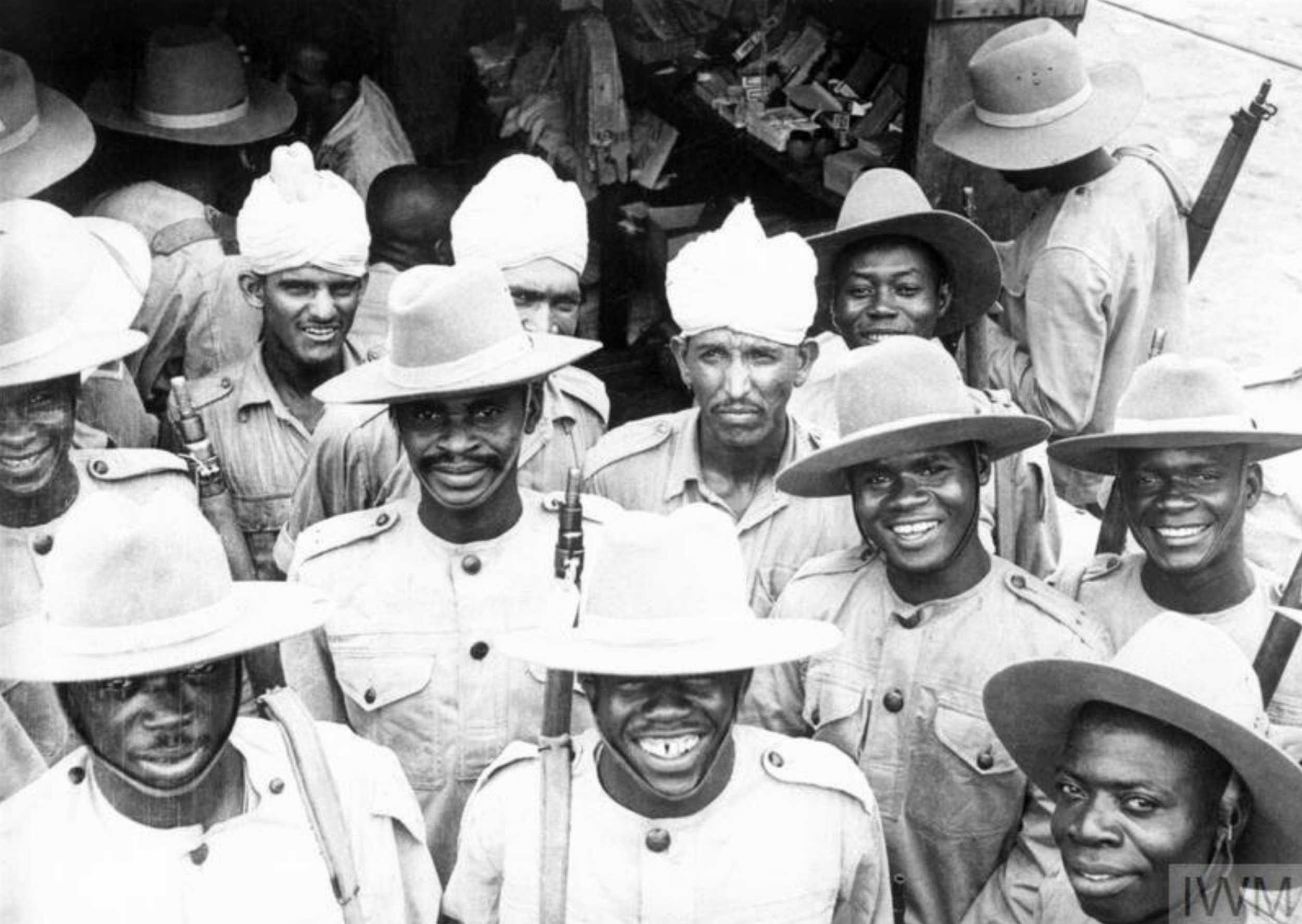Introduction
By the time of the Second World War, the vast majority of African nations had been colonised by the European Empires, such as the British, French and Italian Empires. The British Empire spanned across all regions of Africa, including the examples of present-day Ghana, Nigeria, Kenya and Sierra Leone.
Hundreds of thousands of soldiers from these countries participated in the war and it was one of the few regions in the world that produced raw material surpluses (rubber, rice, tin and copper) for export to parts of the globe where deficit became normal.
Because of these contributions, sub-Saharan Africa played an important, though sometimes overlooked role as a source of manpower, food and strategic raw materials for the Allies and the fighting fronts. Read more about how Africa contributed to the war effort below.
DID YOU KNOW...?
The Royal Navy had two ships (Crown Colony Class Cruisers) called HMS Uganda and HMS Jamaica, both of which played important roles during the war.
HMS Uganda’s ships company was presented with gifts from the people of Uganda including: silver bugles, a silk white ensign (Royal Navy flag), African drums, coffee machine and a supply of coffee.
SECOND WORLD WAR CONTENTS:
COMING SOON!
References


